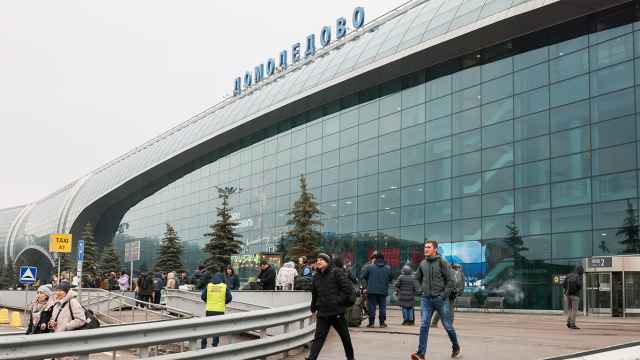
Chief Representative, Coleman Services UK, Deputy Chairman, AEB Board, Chairman, AEB HR Committee
The year of 2012 is passing by, the year of common uncertainty and apprehension. For the whole year it seemed that everyone has been waiting for something and watching others, waiting and watching in their turn.
The very beginning of the year was expectation of Russian presidential elections' results. Further on we have been waiting for any progress in the EU economic situation, trying to better feel and calculate its immediate influence on our own businesses here in Russia. But despite the very cautious approach of the local top management combined with especially strict directives from the global headquarters on saving budgets, it seems that our country has turned out to be sort of a "stormless haven" for the majority of businesses this year, as had been predicted before.
Still, the market shows some trends that can be seen as negative and nowadays it cannot be compared to anything we saw in late 2008-2009. There is a world of difference between slowing GDP and falling GDP.
Let's try to figure out major trends and specifics in the HR field, which we have observed since January and are experiencing still now.
The demographic situation hasn't become easier; it even reasonably worsened. The unemployment rate is at its lowest in Russia ever (particularly in Moscow: 0.6% according to Rosstat in September 2012). The main headache for every HR is lack of proper candidates for the majority of positions in all business sectors.
High demand for recent graduates accentuates demographic pitfall (likely to worsen in 2013). The current "baby boom" supported by the government is not going to be of any help to employers seeking for the workforce until two decades pass by.
Turnover among mid to senior level management decreased this year, hence fewer managerial roles are available, and quick advancement is harder to obtain.
Despite the average high demand in personnel, companies show no urgency in hiring. The low unemployment means that the majority of applicants have jobs, and are basically looking to increase their compensations. Over-paying for candidates is not an option for most employers in 2012. As a result, prolonged search for relevant fits has become standard practice. Applicants complain of long periods of interviewing. It's not even the number of interviews; it's the intervals between them that make a jobless applicant fret and worry. It stands to reason, though — when there are few relevant CVs, an employer can't compare and therefore is reluctant to hire. In order to avoid (or minimize) mistakes in hiring, the natural solution is to extend the period for candidate selection. The problem is that good candidates are forced to accept the first offer they get, not the best they might have gotten.
We observe anomalies appearing on the market that virtually belongs to candidates; there is still such a thing as "stagnant" unemployment with every fourth jobless applicant seeking employment more than a year (Rosstat research of September 2012). Job-hopping and careless career planning combined with a lack of professional experience and background result in many candidates having unattractive CVs. In order to get a job offer more quickly, a jobless applicant may lower his/her salary expectations or look for a downgrade vacancy. However, most employers see such candidates as over-qualified or unmotivated to work in the long run. The longer the person is out of a job, the harder it is to find a new one.
Retention, even in its simplest form of counter-offer, gains weight as alternative to recruitment of new talent. If compared to hiring and training new personnel, retaining workers seems a sensible cost-efficient option. If competencies are lacking, then T&D budgets have to make up for that.
Promoting talent from within gets to be a universal solution to employers who fail to find required competencies on the outside market (especially when compensation limits are tight). Mostly such promotions occur on a specialist level.
Two above statements can be seen as contradiction: "quick advancement is harder to obtain,", "internal promotions occur more often as alternative to outside recruitment." The reality is more complex. Candidates would choose larger and stable organizations where they can learn, even at the cost of getting no promotion. Companies that fail to recruit, promote (for better or for worse).
War for talent is still on, but few companies are on the offensive. Well-planned defense against losing talent is the new motto for HR departments.
We state an extremely high demand for personnel engaged in industries that supply performance efficiency solutions.
With recession in EU and the saturation of the Russian market, companies seek to protect their margins and retain competitive edge by implementing performance-efficiency solutions. In almost all cases it means automation of processes to save costs. Best value-for-money propositions are selected, and therefore competition in the IT industry is as high as ever. Naturally, providers of such solutions seek both technical and sales talent to stake the market ahead of rivals.
According to various research data, the average salary increase in 2012 for international companies operating in Russia is about 9 percent. This year it has been even more customized than ever, companies using salary increase and compensation package improvement as a special tool for retention of talent.
In the field of temporary and agency labor, 2012 may be characterized as the period of "lost opportunities" due to the ambiguity in the situation with the Duma Draft Law on secondment banning. Investors, although experiencing a high demand in temporary personnel for their projects, are even freezing some of them to a certain extent or postponing market penetration and expansion, being afraid of future consequences in case of the law's adoption.
In the view of the growing qualified personnel deficit, companies are using shift work more often, especially for manufacturing enterprises in industrial clusters. The average low mobility among the lower qualified workers is a serious obstacle for businesses, being dependent on seasonal market fluctuations.
On the whole, 2012 can be seen as another good and stable year for the labor market, picking up trends of 2011, and giving rise to some that we'll see develop in 2013.
A Message from The Moscow Times:
Dear readers,
We are facing unprecedented challenges. Russia's Prosecutor General's Office has designated The Moscow Times as an "undesirable" organization, criminalizing our work and putting our staff at risk of prosecution. This follows our earlier unjust labeling as a "foreign agent."
These actions are direct attempts to silence independent journalism in Russia. The authorities claim our work "discredits the decisions of the Russian leadership." We see things differently: we strive to provide accurate, unbiased reporting on Russia.
We, the journalists of The Moscow Times, refuse to be silenced. But to continue our work, we need your help.
Your support, no matter how small, makes a world of difference. If you can, please support us monthly starting from just $2. It's quick to set up, and every contribution makes a significant impact.
By supporting The Moscow Times, you're defending open, independent journalism in the face of repression. Thank you for standing with us.
Remind me later.





